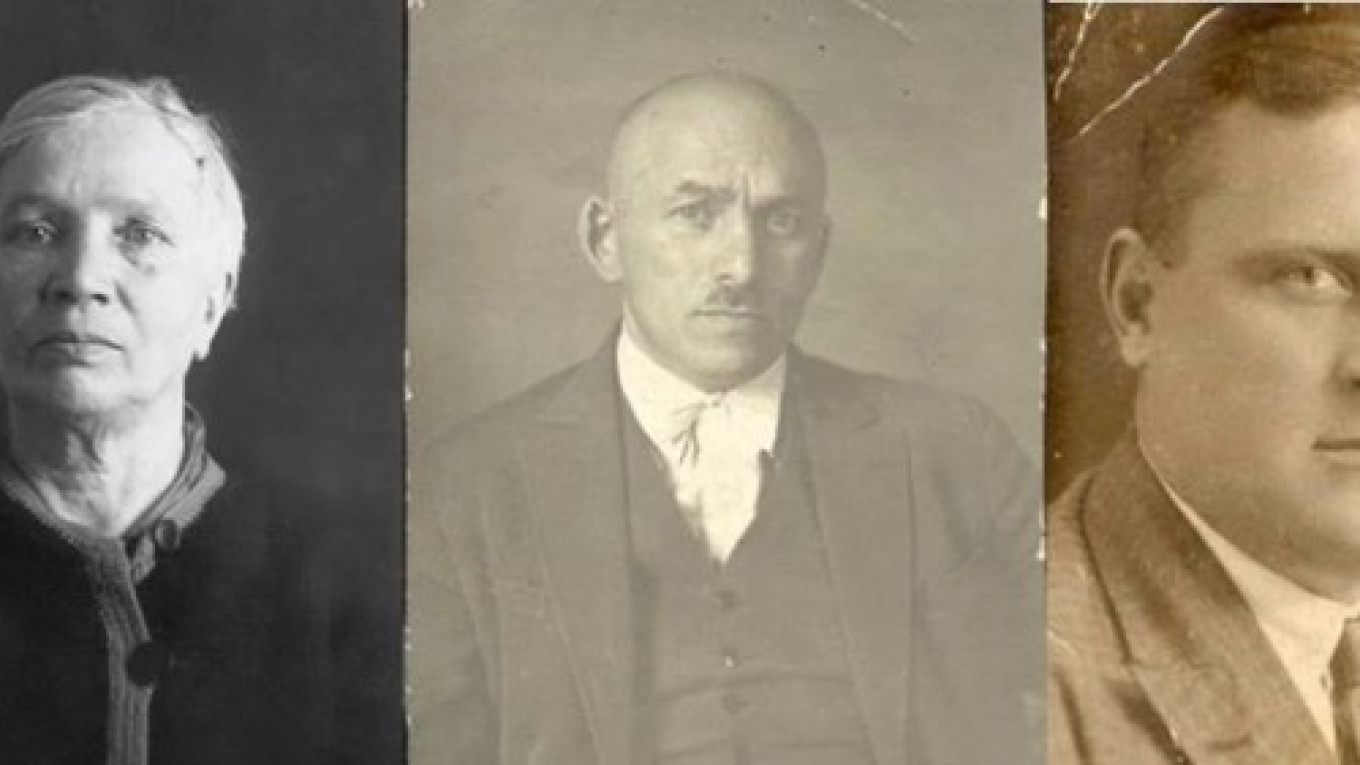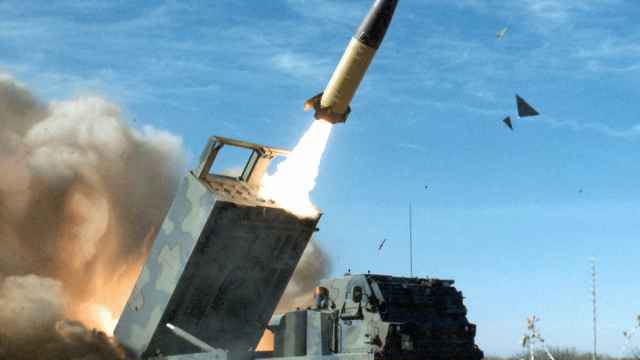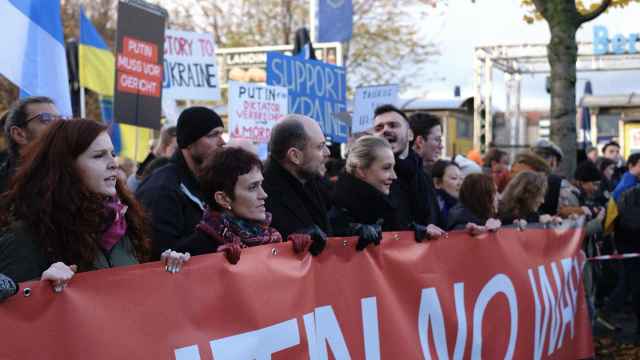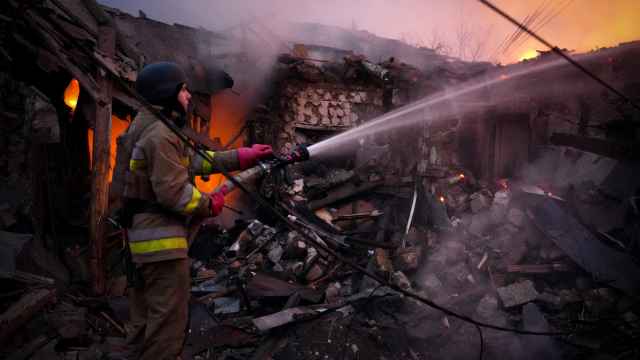At least seven plaques commemorating Russian citizens sent to gulag forced labor camps under Soviet dictator Josef Stalin have been placed on the Moscow buildings where they last resided before being apprehended by Soviet secret police, the independent newspaper Novaya Gazeta reported Sunday.
The palm-sized plaques have been installed as part of a memorial project known as “Last Address,” and feature the names, occupations, dates of birth and death of the gulag victims, as well as the year they had their names cleared of all charges, or were “rehabilitated,” Novaya Gazeta reported.
An online crowdfunding campaign raised more than 1.5 million rubles ($22,300) in December to have the plaques installed on the former homes of Stalin's victims, and many of the plaques have been requested by surviving family members who remember where the victims were living when they were seized.
The Last Address project is not affiliated with the Russian government, Maxim Kats, a Moscow city councilman said when the project was launched in December. “Thank God they didn't interfere,” he said at the time.
While human rights groups such as the Memorial Human Rights Society — which maintains the database of victims that Last Address is using for the project — continue to draw attention to Stalin's repressions, the Soviet dictator is enjoying renewed popularity in Russia under President Vladimir Putin.
Results of a survey conducted by the independent Levada Center in December showed that over half of Russians believe Stalin played a positive role in Russian history.
The plaques have so far been placed at Sivtsev Vrazhek 21, a residential building in central Moscow, near the Arbatskaya metro station. Two buildings on the same street have also received memorial plaques.
Last Address has also installed a plaque on a building at Bolshoi Afanasyevsky Pereulok 33, and two plaques at Ulitsa Palikha 1/13.
Contact the author at newsreporter@imedia.ru
A Message from The Moscow Times:
Dear readers,
We are facing unprecedented challenges. Russia's Prosecutor General's Office has designated The Moscow Times as an "undesirable" organization, criminalizing our work and putting our staff at risk of prosecution. This follows our earlier unjust labeling as a "foreign agent."
These actions are direct attempts to silence independent journalism in Russia. The authorities claim our work "discredits the decisions of the Russian leadership." We see things differently: we strive to provide accurate, unbiased reporting on Russia.
We, the journalists of The Moscow Times, refuse to be silenced. But to continue our work, we need your help.
Your support, no matter how small, makes a world of difference. If you can, please support us monthly starting from just $2. It's quick to set up, and every contribution makes a significant impact.
By supporting The Moscow Times, you're defending open, independent journalism in the face of repression. Thank you for standing with us.
Remind me later.






